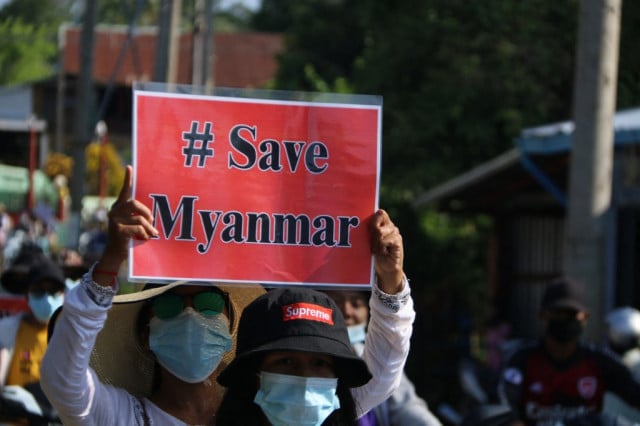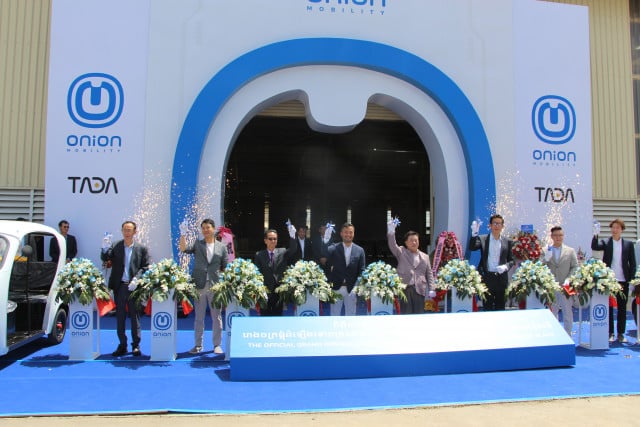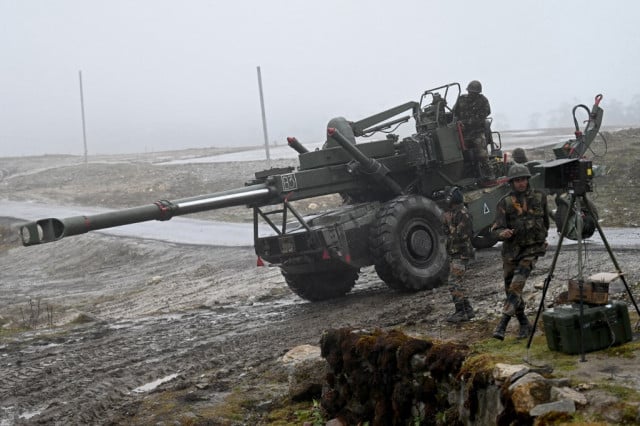Opinion: Myanmar Crisis Adds Complexity for ASEAN

- By Him Rotha
- September 12, 2021 5:37 PM
Cambodia will have to tread carefully as bloc chair
More than seven months after the coup by the Myanmar military, known as the Tatmadaw, the path toward normalcy in remains shrouded in darkness.
The Association of Southeast Asian Nations (ASEAN) has tried to help Myanmar in the form of its Five-Point Consensus plan, but to no avail.
Any political settlement is far off amid insecurity all over the country and the COVID pandemic.
The crisis is entering a new phase with the declaration of war on the military by the National Unity Government (NUG), made up of pre-coup government figures.
This adds another layer of complexity to ASEAN’s diplomatic efforts in helping resolve the issue.
News of military brutality, violent repression of civilians, and resistance has been heard almost every day from this Southeast Asian country since February when the military deposed the civilian government led by Aung San Suu Kyi’s National League of Democracy which won a landslide in last year’s elections.
The international community, including the United Nations and ASEAN, called for an immediate ceasefire and a political settlement involving all concerning parties.
Some Western countries have imposed targeted sanctions on the Tatmadaw, while other countries such as China, Russia, and Myanmar’s neighbors advocated non-interference.
The crisis moved into the new phase on Tuesday when the NUG declared a “People’s Defensive War”, a call for all stakeholders in the country including military-affiliated officials and ethnic groups to take part in an armed revolt against the Tatmadaw. This declaration seems to surprise those outside of Myanmar, but for the Myanmar public, it is called D-Day, which has been speculated for weeks.
Two main observations of the declaration of war by the NUG: First, and most importantly, the dynamic within Myanmar has begun to shift from the confrontation between the military, and pseudo-civilians towards a full-fledge civil war.
The NUG may no longer be seen as an innocent civilian stakeholder, but rather as another armed faction. Some western countries, like the UK, and the US have condemned the coup and the military brutality but do not condone violence as the solution.
Some may argue that this is not a new thing in the country as there have been wars for decades between the Tatmadaw and ethnic armed groups. However, this time, the conflict has escalated nationwide.
Previously, there have been movements resisting the coup, but these have been small-scale, and were operated by different organizations in many remote areas as well as in some targeted public buildings or areas in major cities.
According to NUG accounts, the People’s Defense Force (PDF) – NUG’s army branch, established in May – killed around a thousand Tatmadaw soldiers in the last two months. Based on the statement by the Union Solidarity and Development Party (USDP), the pro-military political party, more than 200 party officials were dead, and NUG affiliates were responsible.
After the NUG war declaration, there are reports that the confrontation has continued, and fears of more violence have heightened.
Secondly, this declaration took place only weeks before the opening 76th session of the UN General Assembly. Why it’s relevant? Because before the new session, the Credential Committee of the UN is to decide on who will represent Myanmar.
Currently, Kyaw Moe Tun, who denounced the coup in February and has conveyed NUG messages to the UN, occupies the seat. He even cast the ballot in June to support the UNGA resolution, which called for prevention of the arms flow into Myanmar. Military-appointed Foreign Minister sent a letter to Antonio Guterres, UN Secretary-General in May, with the intention to replace Kyaw Moe Tun.
It has been suggested that Myanmar’s UN seat will become vacant, as has happened in UN history or the Credential Committee will choose one side. In some cases, the Committee would refer to the UN General Assembly to vote on the credential of the representative.
Through the declaration of war, the NUG wants to show the world that its government does not only exist on paper, but is acting to regain the control of the country.
ASEAN has issued statements since shortly after the coup. In April, the Five-Point Consensus was adopted, while in August, Bruneian Second Foreign Minister Erywan Yusof was appointed as the Special Envoy. Yusof was tasked to find ways to put into action the Five-Point Consensus whose key objectives include cessation of violence, channeling humanitarian aid and helping foster dialogue among relevant parties.
Nevertheless, the efforts by ASEAN were not commended by all parties in Myanmar. The military side seems not to have taken ASEAN’s approaches seriously. Military chief Min Aung Hlaing stated in late April that stability in the country comes first, before accepting ASEAN’s proposals. The anti-coup rivals frequently criticized ASEAN for deciding to only deal with the military in the official capacity and marginalizing other parties, especially the NUG.
Recent calls for a four-month ceasefire by the Bruneian diplomatic chief seems to have been ignored. He told the media that the military accepted his ceasefire proposal for aid delivery, yet days later the military spokesman denied that their side had agreed anything. NUG, on the other hand, rejected the proposals indirectly by calling for the uprising.
These events have serious implications for the unity and centrality of ASEAN. The relevance of the regional bloc has been challenged for years due to its ineffectiveness in dealing with key regional issues. Myanmar is another obvious example that could further question ASEAN’s credibility in maintaining regional peace and stability.
It is still unclear that all ASEAN member states have a common position on recognizing the legitimate authority in Myanmar. It would be a high risk to regional security if each side in Myanmar is backed by different major foreign powers. Currently, the military regime is seen to be getting arms from Russia, while the NUG has not identified its supporters.
It is still early to determine the extent, and direction of the civil war in Myanmar, but it is undeniable that this development would be a huge headache for ASEAN as a whole, and especially for Cambodia, which will chair the regional bloc next year.
The ASEAN special envoy has hinted that his term may end later this year and Cambodia will appoint his replacement. In this regard, Cambodia is likely to have a major role in maneuvering around the difficulties and mobilizing the ASEAN consensus to achieve key objectives of the Five-Point Consensus as the Myanmar crisis appears to become long and complicated.
Him Rotha is a researcher at the Cambodian Institute for Cooperation and Peace (CICP)















